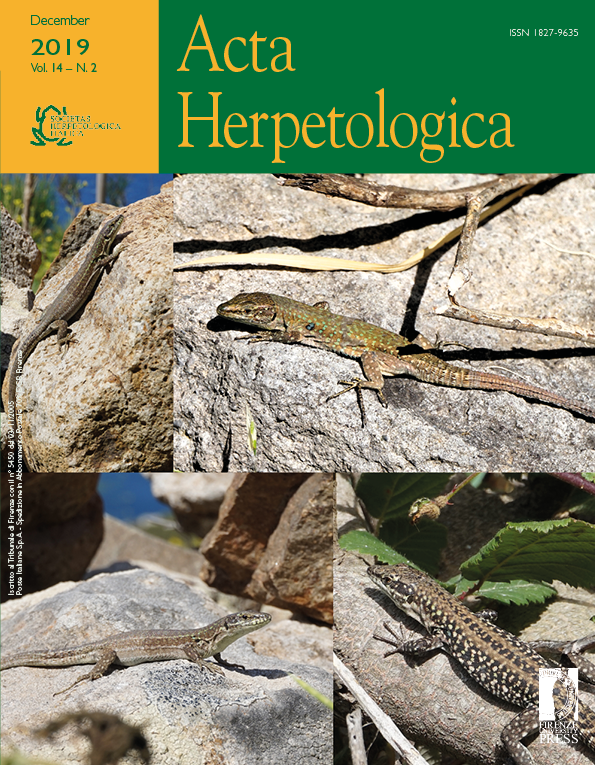PIT-Tags as a technique for marking fossorial reptiles: insights from a long-term field study of the amphisbaenian Trogonophis wiegmanni
Published 2019-12-27
Keywords
- Amphisbaenians,
- Trogonophis wiegmanni,
- PIT-tagging,
- body condition,
- fossorial reptiles
How to Cite
Abstract
Many field studies of ecology or conservation require individual identification of the animals, and for this, several marking techniques have been developed. However, no specific labeling technique has been tested for fossorial reptiles, such as amphisbaenians. We describe the use of Passive Integrated Transponder (PIT) tags as a long-term labeling method of the amphisbaenian Trogonophis wiegmanni. We present the details of the marking procedure and examine the benefits and drawbacks of the technique considering the fossorial environment. After marking many individuals in a long-term field study, we can ensure that the marks were easily applicable and were not lost over a period of at least four years. Moreover, PIT tags did not negatively affect the body condition of amphisbaenians. We conclude that PIT tags are useful for doing field studies of this and similar fossorial species.






